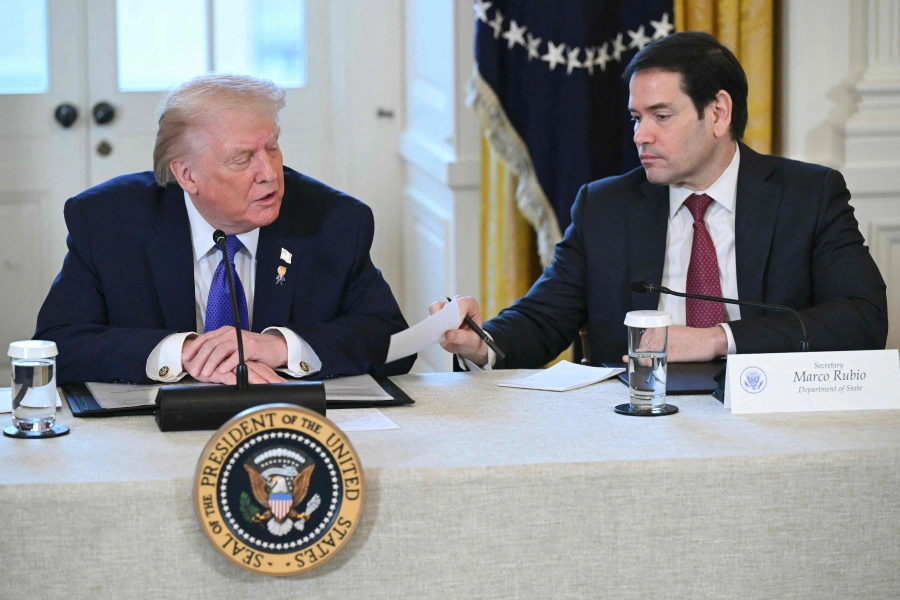KATHMANDU, June 9: Although the current situation created by COVID-19 has brought adversity to the education sector, experts state that it has rather exposed the loopholes and flaws in our teaching-learning system and hinted at the changes that need to be made.
“Considering the defects in our education system that COVID-19 has exposed to us, the education system in the post COVID-19 world will need many reforms- a lot more than just a surficial turnaround,’ said Mana Prashad Wagle, an educationalist.
Speaking at a virtual conference hosted by Kathmandu University Professor’s Association on the agenda of ‘Resuming academic activities in university during pandemic’, Wagle and various other education experts from different higher education institutions agreed on the same font, supporting his statement that the chaos created by the COVID-19 lockdown reflected numerous drawbacks in our education system. These drawbacks would have to be addressed even if the nation wouldn’t have been exposed to a pandemic.
Like every other sector, the education sector has faced tremendous stumbling blocks due to the lockdown imposed by the government. To compensate for the loss, a few education institutes have started online classes. The virtual classes do have their own advantages as well as disadvantages, but it is perceptibly not enough to recoup the loss created in this pitiful situation.
“Online classes do have a wide range of advantages as well as disadvantages; numerous students can be involved at once and it is said to be cheaper” said Professor Kedar Bhakta Mathema, former vice-chancellor at Tribhuvan University.
Citing examples of online education systems in foreign countries, Mathema speculated that online classes might also promote a self-learning environment which leads to ‘lifelong learning’. “Previously, education institutions did not value online classes but the COVID-19 lockdown gave a space for it to loom,” he said.
How to help vulnerable groups

According to Mathema, for a country like Nepal, it is a noteworthy opportunity to internationalize our programs and courses related to Nepali art and culture.
However, like Wagle, he too mentioned that online classes aren’t enough to strengthen the education sector in the post COVID-19 world and there are several other modifications that need to be addressed.
According to a report presented by Wagle who is also a former dean of the Faculty of Education at Kathmandu University, currently a total of 0.7 million university students along with 20,000 students are locked in their homes but only a few colleges and universities have started online classes.
The same report included that according to a recent economic survey; only 56 percent of students receiving higher education have proper access to the internet. This number can largely differ in case of students receiving elementary level education.
Similarly, the report further noted that the affordability of high-speed internet is seen very low in students from Tribhuvan University which enrolls a large number of students every year. “Access to high-speed internet is comparatively low among students receiving their higher education at Tribhuvan University where a majority of students study and they are from low- or middle-income backgrounds,” said the report.
This drags to a conclusion that online classes alone aren’t enough to reform the education sector.
So what can be done?
The professors cited that firstly a stronger budget allocation should be owed to the sector of education. The budget should further be ‘equally distributed’ to all education levels – that includes primary, elementary and higher education levels. “There seems to be an imbalance in the current budget allocation when it comes to distributing equal budget to all levels,” said Wagle.
The education sector in the post COVID-19 world should also prioritize the physiological effects on students caused by the pandemic.
Looking back at the outcome of the SARS coronavirus (SARS-CoV) outbreak in 2003 and the Middle East Respiratory Syndrome (MERS) outbreak identified in 2012, about 15-20 percent of university students had dropped out from their colleges and universities. Nepal too can face similar problems where the government should come up with solutions to eliminate the situation beforehand. “We should be prepared for similar consequences and plan on bringing students back to education after the pandemic,” said Wagle.
For that, the education institutions should firmly lower the fees of students by cutting off extravagant fees and sinking unnecessary expenses.
Moreover, the education system should also be reformed in a way in which it can reduce ‘brain drain’ in Nepali youths. “The reforms made in the education system should be able to address the problem of brain drain that we have been facing for a long time,” stated Prof Wagle adding,” We should be able to update our education in a way that can be equivalent to foreign education”.
Furthermore, education institutions should focus on altering the trend of ‘evaluation method’ in students. “We should focus on changing the traditional system of student evaluation and bring fresh ways of evaluation that are different from evaluating them just on the basis of terminal examinations,” said Prof Dr Bhadra Man Tuladhar, advisor and founder member of Kathmandu University and President of Nepal Mathematical Society.
It was also suggested that the Nepali government prioritize ‘free high-speed internet scholarship’ to students rather than traditional scholarships. “Realizing the necessity of the internet to students, the government should provide ‘free high-speed internet scholarship’ to students who require it,” said professor Mathema.
Apart from the aforementioned solutions, the most effective way to tackle this common problem is to obliterate competition with each other. “Now that we have all seen the worst of times together, all the universities and education sectors should cut competition with each other and should work in collaboration with each other,” said Prof Bishal Sitaula, professor at the Norwegian University of Life Sciences. “We should be able to struggle together and make reforms together,” he said.
In the same meeting, moderator Bikash Adhikari mentioned that issues discussed in the virtual meeting have already been delivered to the Ministry of Education which has assured that these issues will be raised at higher level discussions in order to extract a better conclusion. “Although we couldn’t have representation from the ministry, the issues we discussed today have been delivered and we got a response that these agendas will be discussed in further high level meetings,” he said.












_20200814192758.jpg)


























